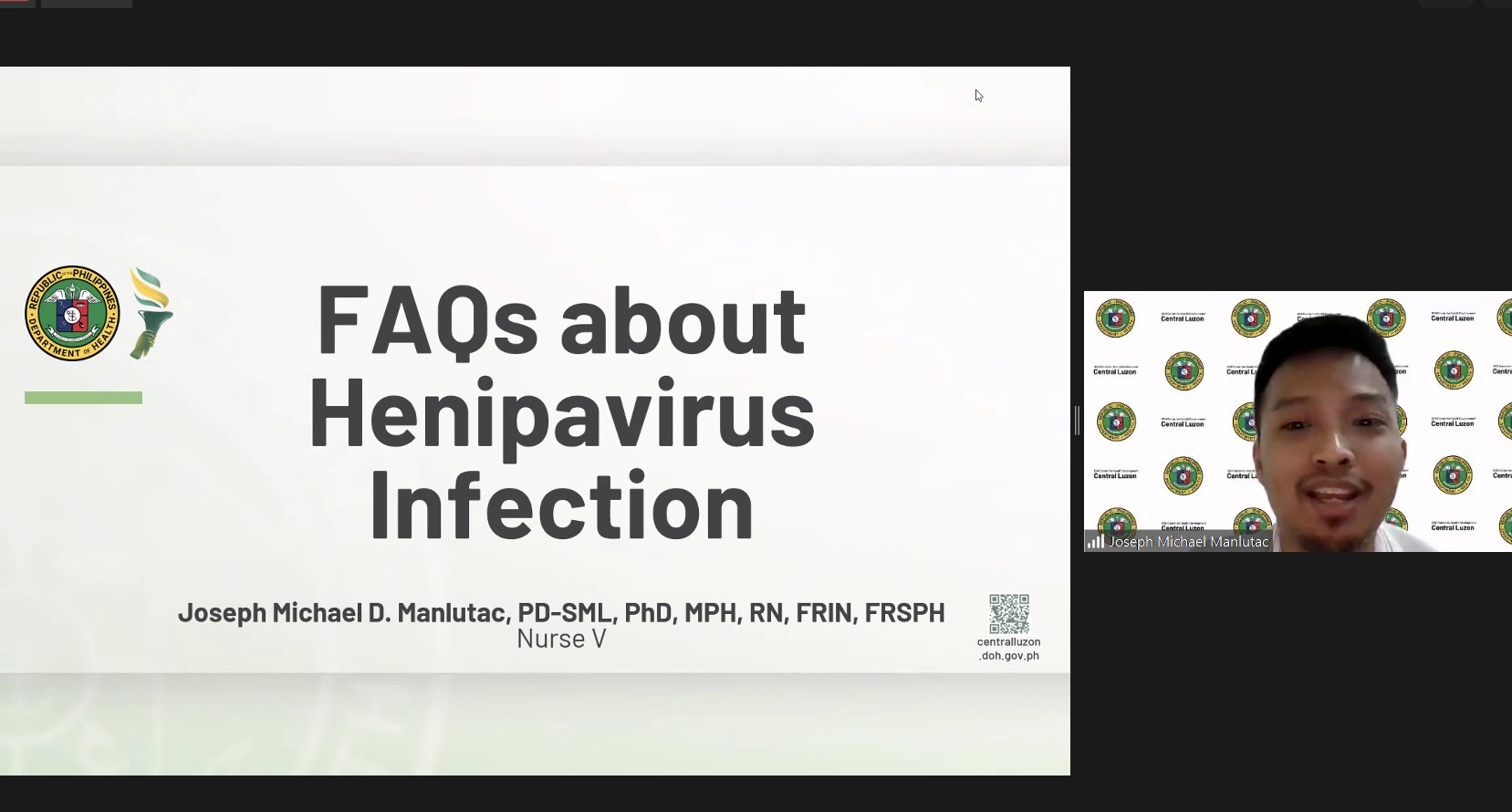BALANGA CITY — Department of Health (DOH) Central Luzon Center for Health Development (CLCHD) highlighted the significance of a One Health approach in preventing Henipavirus infection.
Acknowledging and collectively addressing the interconnectedness of human, animal, and environmental health is crucial to tackling and preventing health concerns, particularly zoonotic diseases capable of transmission between animals and humans.
DOH CLCHD Infectious Diseases Cluster Nurse V Joseph Michael Manlutac said Henipavirus, a zoonotic disease transmitted from animals to humans, poses a significant health concern.
“Our government agencies, particularly Department of Agriculture and Department of Environment and Natural Resources,
should collaborate to ensure that Central Luzon and hopefully the entire country remain free from Henipavirus infection,” he pressed.
Manlutac also urged the public to remain vigilant, emphasizing that henipavirus transmission can occur through various means such as direct contact with infected animals and their body fluids, as well as close contact with a person infected with the Nipah Virus.
He noted that the virus typically has an incubation period of 4 to 14 days, with atypical cases reporting an incubation period of up to 45 days from exposure.
“In the initial phase, symptoms of Henipavirus infection include fever, headache, cough, sore throat, difficulty in breathing, and vomiting. In severe cases, patients may experience disorientation, drowsiness, confusion, seizures, coma, and brain swelling or encephalitis,” he shared.
Manlutac underscored the importance of isolating suspected, probable, or confirmed cases in a health facility for at least 21 days.
Moreover, if close contacts exhibit symptoms, they should be placed in a designated isolation facility; otherwise, home quarantine with standard precautions is acceptable.
“Individuals with signs and symptoms of henipavirus shall be appropriately triaged to ensure proper referral and timely management,” he furthered.
Currently, there is no licensed treatment or vaccine available for henipavirus infection.
Treatment is limited to supportive care, including rest, fluid and electrolyte replacement, oxygen inhalation, nutritional support, and symptom management.
Intensive supportive care is recommended for severe cases, with care individualized according to the clinical presentation and the assessment of the treating physician. –Rick P. Quiambao





